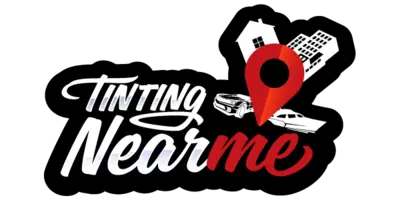2024 Michigan Legal Tint Laws Explained
In the realm of aesthetics and safety, the 2024 Michigan Legal Tint Laws serve as the guiding light. You might think it’s a simple matter of choosing the tint you find most appealing, but there’s a lot more to consider. The laws dictate specific parameters, based on Visible Light Transmission percentages, for the darkness of tint permitted on various sections of your vehicle. They also outline the regulations for reflective tint and provide exceptions for medical reasons. But what exactly does all this mean for you? Well, stick around, and we’ll unpack the complexities together, ensuring you’re not just compliant, but also informed.
The information on tintlaws.com isn’t legal advice; consider it a starting point. Always verify with local and state authorities, as the final decision rests with you. We are not lawyers. For specific legal guidance, we can refer you to legal experts. Remember, knowledge of both state and local laws is essential, and even law enforcement might not be fully updated. We aim for accuracy but advise double-checking for the latest regulations.
Key Takeaways
Key Takeaways
Key Takeaways
- Sedans: Non-reflective tint allowed on windshield’s top 4 inches, any darkness for back windows, front/back side windows max 35% reflective, no tinted license plate covers.
- SUVs/Vans: Similar to sedans, non-reflective tint on windshield’s top 4 inches, any darkness for rear windows, medical exemptions apply, see Michigan State Police Traffic Law.
- Reflectivity: Front/back side windows’ reflectivity must not exceed 35%, no gold/silver colors, side mirrors required if rear windshield is tinted, medical exemptions with doctor’s note.
- Medical Exemptions: Allow for darker tint with a doctor’s note, applicable to drivers with specific medical conditions, valid for any driver of the vehicle.
- Penalties: First offense usually a fix-it ticket, subsequent violations may lead to a $25 fine, and repeated offenses could add points to driving record, impacting insurance rates and driving privileges.
Michigan Sedan Tinting Regulations
If you’re planning to tint your sedan in Michigan, it’s crucial to note that the state allows non-reflective tint on the top 4 inches of the windshield and any darkness on the top 4 inches of front side windows, as well as on back side and rear windows. These tinting laws are part of Michigan Window Tint Law, which aims to maintain safety on the road while allowing vehicle owners to customize their cars.
Michigan law is explicit on the level of reflectiveness your tint can have. Front side and back side windows are not to be more than 35% reflective. This helps in reducing glare from the sun and headlights from other vehicles, ensuring a clear view of the road.
Notably, Michigan Tint Laws prohibit the tinting of license plate covers. This is crucial in ensuring license plates are visible at all times and can be easily identified by law enforcement. Furthermore, Michigan law mandates that headlights and tail lights remain unobstructed and unaltered.
Medical exemptions to the tint laws in Michigan are permitted. You can have your windows tinted without penalty if you have a medical condition that requires it and you have a doctor’s note to prove it.
Lastly, Michigan State has additional tinting regulations. If your rear windshield is obstructed, side mirrors are a requirement. Silver and gold tint colors are prohibited. And, manufacturers are not required to certify the tint film they sell.
SUV and Vans Tint Laws
Moving on to SUVs and vans, Michigan’s tint laws mirror those for cars, stipulating non-reflective tint on the top 4 inches of the windshield. However, there are some unique considerations when it comes to the legal tint for SUV and vans.
In line with the Michigan Vehicle Code, window tinting in Michigan for these larger vehicles must adhere to specific parameters. For the front side windows, the tint darkness must not extend beyond the top 4 inches, ensuring optimal visibility. This is a critical aspect of the State Police Traffic Law designed to maintain road safety.
When it comes to the rear side windows and the rear windshield, you have a bit more leeway. Michigan’s window tint laws allow any level of tint darkness for these windows. This means you can opt for a darker tint if desired, offering increased privacy and sun protection.
It’s also important to note that Michigan allows medical exemptions for window tint laws. If you have a documented health condition that necessitates darker window tint, you may be eligible for an exemption. However, it’s crucial to follow the proper procedures to secure this exemption and stay within legal bounds.
SUV and vans tint laws in Michigan aim to balance the needs of drivers for privacy and sun protection, with the importance of maintaining safety on the roads. To ensure you’re compliant, always consult the Michigan State Police Traffic Law for the most current regulations regarding Visible Light Transmission and tint laws.
Reflective Tint Regulations
When it comes to reflective tint regulations in Michigan, you’ll find that the laws cap the reflectivity of front and back side windows for sedans, SUVs, and vans at a maximum of 35%. This tint percentage reflects the state law’s effort to balance between your privacy and safety considerations on the road. Anything beyond this window reflection limit could potentially cause hazardous glare to other drivers.
Interestingly, Michigan law doesn’t specify darkness limits for tint, but is particular about solar reflections. Meaning, you could technically go as dark as you want with your tint, as long as you follow the reflective tint regulations.
It’s also worth noting that the state prohibits silver and gold tint colors. Additionally, if your car’s rear windshield is obstructed, side mirrors are a must.
Now, let’s understand this visually:
Tint Reflection | Michigan Law |
Front and Back Side Window Reflectivity | 35% max |
Tint Color Restrictions | No Gold or Silver |
Side Mirrors Requirement | If Rear Windshield is Obstructed |
Medical Exemptions | Allowed with Doctor’s Note |
Legal Tinting Identification | No Sticker Required |
Lastly, Michigan recognizes that certain medical conditions may necessitate higher degrees of tinting. As such, the law allows for medical exemptions, provided you have a doctor’s note.
Medical Tint Exemptions
Navigating the complexities of Michigan’s tint laws, you’ll find that medical exemptions offer an important provision for those with health conditions that necessitate darker window tinting. These exemptions provide a legal avenue for individuals with specific medical conditions to have tinted windows, which would otherwise be prohibited under the state’s rules and regulations.
In order to qualify for a medical exemption for special tint, the State requires that you:
- Have a medical condition that warrants the need for darker tint.
- Obtain a doctor’s note verifying this condition.
- Comply with MCL 257.709(3)(e), which permits vehicles with medical exemptions to have tinted windows for the safety of the individual.
- Understand that another driver can operate your vehicle without penalty for the darkened windows, provided the vehicle has a medical exemption.
You’re probably wondering how these laws apply to you and where law enforcement fits into the picture. If your car is stopped and your window tints are examined, having a doctor’s note can prevent potential penalties. Furthermore, it’s essential to remember that these medical exemptions exist to safeguard individuals sensitive to sunlight, not to circumvent the law.
Penalties for Non-Compliance
While it’s essential to take advantage of medical exemptions if you qualify, it’s equally crucial to be aware of the penalties that come with non-compliance to Michigan’s tint laws. These laws are in place to ensure safety on the roads, and police officers enforce these important laws diligently.
Violations are easy to accrue if you’re not careful. The specific rules dictate that your first violation results typically in a fix-it ticket. This is a warning, essentially giving you the chance to correct the mistake. However, if you fail to heed this warning, penalties for non-compliance become more severe. Subsequent violations may incur a $25 penalty fee.
Even more concerning, if you repeatedly ignore the rules, you’ll not only be hit with fines but also points on your driving record. Two points, to be exact, for repeat offenses. This can have serious consequences for your driving privileges and can also impact your car insurance rates.
The 2024 Michigan legal tint laws explained here underline the need to remember that non-compliance isn’t taken lightly. It’s crucial to know the rules and respect them if you wish to avoid the penalties. The laws are specific and clear, and ignorance isn’t an acceptable excuse for non-compliance.

How to Get Medical Exemption For Window Tint in Michigan
Discover MyEyeRx.net, a company that streamlines the process of obtaining a medical exemption for window tint online. Explore their services to easily transform your window tint from non-compliant to legally approved!
Because of the differences in each of the 50 states, we’ve crafted distinct guides for securing window tint medical exemptions across all 50 states.

Toriano (Tory) Dewberry
Become one of the many satisfied clients Toriano has assisted in obtaining a medical exemption without stepping out of their homes. Click the button below to begin and discover if you're eligible for a medical exemption.

Toriano (Tory) Dewberry
Become one of the many satisfied clients Toriano has assisted in obtaining a medical exemption without stepping out of their homes. Click the button below to begin and discover if you're eligible for a medical exemption.
Frequently Asked Questions (FAQ'S)
What Is the Darkest Legal Tint in Michigan?
In Michigan, you’re allowed any tint darkness on your back side and rear windows. For front side windows, the tint can be any darkness, but only at the top 4 inches. Tinting offers benefits like UV protection, privacy, and enhanced durability. It’s vital to consider installation, maintenance, and potential removal costs. Also, consider safety, as darker tints can affect visibility. Explore different tint types to find one that suits your needs and complies with Michigan laws.
How Much Is a Ticket for Illegal Tint in Michigan?
If you’re caught with illegal tint in Michigan, you’ll initially get a fix-it ticket. However, if you don’t correct the issue, subsequent violations could cost you $25. Additionally, repeat offenses might add two points to your driving record. It’s crucial to understand Michigan’s tint laws to avoid such penalties and maintain your driving record. Remember, these laws are in place for your safety and the safety of others on the road.
What Is the Darkest Legal Tint?
In Michigan, you’re allowed to have non-reflective tint on the top 4 inches of your windshield. Your side windows can also have tint, as long as it’s no darker than 35% reflectivity. This balance ensures tinting benefits like reduced glare and UV protection, without compromising safety issues. Remember, improper tint installation, or choosing less durable tints may impact your vision, requiring removal. Tinting costs vary, and while enhancing vehicle aesthetics, it also requires careful maintenance.
How Dark Is 35 Window Tint?
A 35% window tint is moderately dark, allowing 35% of visible light to penetrate. It offers several tinting benefits such as UV protection and enhanced vehicle aesthetics. However, visibility concerns may arise, especially at night. Despite this, it’s a safe option that adheres to many state tint percentages laws. Remember, proper installation and maintenance extend tint durability. If it doesn’t work out, there’s always the option for tint removal.

Tint Laws Team
Ensuring your tint is not just about style, but legality and safety.
Let us guide you through the maze of state regulations to legal clarity.

Conclusion
Remember, it’s your responsibility to adhere to Michigan’s tint laws. Whether you’re driving a sedan, SUV, or van, ensure your tint doesn’t exceed the legal limits. Don’t forget the 35% reflectivity rule for front and back side windows. If you have health concerns, consider a medical exemption, but remember, you’ll need a doctor’s note. Steer clear of penalties and stay safe on the road by following these rules to the letter.
Looking to find a Reputable Window Tint Company In Michigan?
Checkout Tintingnearme.com to Find A Local Tint Shop
After learning about window tint laws, the next step is to find a trusted local window tinting shop. Our directory at Tinting Near Me offers a selection of reputable shops knowledgeable in both quality tinting and legal standards, including medical exemptions.
Choose a shop from our list for expert service that meets legal requirements and enhances your vehicle’s compliance and protection.



